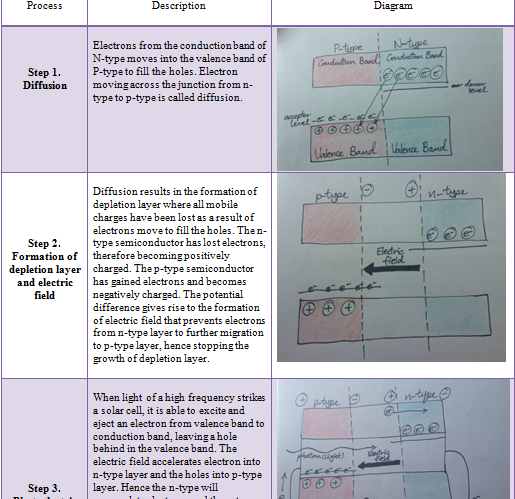Welcome to Matrix Education
To ensure we are showing you the most relevant content, please select your location below.
Select a year to see courses
Learn online or on-campus during the term or school holidays
Learn online or on-campus during the term or school holidays
Learn online or on-campus during the term or school holidays
Learn online or on-campus during the term or school holidays
Learn online or on-campus during the term or school holidays
Learn online or on-campus during the term or school holidays
Learn online or on-campus during the term or school holidays
Get HSC Trial exam ready in just a week
Get HSC exam ready in just a week
Select a year to see available courses
Science guides to help you get ahead
Science guides to help you get ahead

Have you wondered how to get a 99+ ATAR? In Part 5 of the ATAR & Scaling Guide, we share the insights from some of the highly successful Matrix graduates who scored an ATAR above 99.
If you are thinking, “is it even possible for me to score 99+ ATAR?”, you are not alone.
The following list of students felt exactly the same way when they started their HSC journey.
Read on to learn their HSC tips ranging from maintaining focus and motivation to implementing effective study routines.
One of the biggest challenges you’ll face during the HSC year is receiving bad results. No matter how intelligent you are; you are bound to have disappointments over the course of the year. However, it is the decisions that you make in reaction to these setbacks that will dictate the outcome of your HSC experience. Students who are unable to move on from these obstacles become bogged down by their failures, which ultimately define them.
You must understand that the HSC is about consistency.
However, students who understand that the HSC is about consistency and learn from their mistakes take control of their goals rather than letting it spiral out of their reach.
You can read more of students tips in Steven’s post, here.
When I got home from school each day, I would make a list of tasks I would do that afternoon, which would allow me to achieve my weekly goals.
Make a list of small tasks for each day to achieve your weekly goals.
I found that incorporating small tasks, such as printing past papers, helped me break up the monotony of constantly doing larger tasks, such as finishing notes on a chapter. It also gives you the satisfaction of checking off tasks!
You can read the rest of Michelle’s Success Story, here.
Take study breaks and have a weekly “no-study” night. You might be thinking, “oh yeah, I’ve heard all of that before,” but many people aren’t actually 100% bothered to commit themselves to all of the above – so what is the biggest secret to HSC success?
My secret to HSC success was staying motivated by having a clear future goals and aspirations.
Self-motivation! You should ask yourself, why are you doing the HSC? What motivates you to go to school? What are your future goals and aspirations?
Read more of Seven’s tips in his post, here.
Because of my duties as Captain of Community Service and my preparation for the Oxford University entrance process, I was particularly aware of my time constraints, and so I did what I would recommend to each Year 12 student: I planned early.
Develop your study plan early. It should start in Year 11, not Year 12.
Through Matrix’s generous Scholarship program, I accelerated most of my school subjects, so during Year 12 I was only attending Trial and HSC Preparation courses, and perhaps the odd Mathematics Extension 2 class to consolidate a difficult topic.
More of Karen’s tips for achieving a 99.95 ATAR can be found, here.
Sleep is one of the things most HSC students fail to recognise the importance of. Too often I hear about students who’ve stayed up until 3 am studying for their extension 2 exam the next day.
Get adequate rest the night before the exam day.
No sleep means that not only are you going to be tired for the test, but also your mental capacity and ability to think will also be reduced. All in all, resulting in a test result that is much less than you should have got.
You can read the rest of Rohan’s hacks, here.
The largest problem that I faced throughout my preliminary years was procrastination on my phone or computer, which severely detracted from my study time.
Remove the biggest distraction to your study – phone!
This was especially bad after periods of intensive study and I would often feel myself ‘burning out’, leading to me spending even more time on my phone or going out.
Unlike my computer, that was necessary for school and study, my phone didn’t assist my study in any way, but only took away from it. So, I decided to get rid of it!
Learn from your failures: A lot of the time, even though I performed relatively well, I knew I had not performed to my potential, and this was largely due to me procrastinating away a large portion of my study time. So, at the end of Year 11, when I did not receive the marks I had hoped for, I resolved to improve my study technique and remove procrastination for my HSC year.
If you need more advice on beating procrastination, read more of Ymer’s success secrets, here.
Nobody I’ve come across sits down for the first time after reading a literary text and transcribes a 20/20 essay.
Have a clear understanding of the process leading to writing your final essay.
For me, the process of drafting was essential to crafting an essay that I was confident would score highly. I think the process of drafting itself has a few aspects to it.
You can find more of Henry’s tips, here.
It’s crucial that you have a thorough and complete understanding of the Preliminary (Year 11) content. It is assumed knowledge for the HSC course and without a solid foundation, it is much harder to grasp new concepts in the HSC.
Particularly in the Mathematics and Science subjects, the HSC syllabus will go into more depth about the ideas learnt in the Preliminary course, so it’s essential to have basic and prerequisite knowledge in order to maximise your understanding in Year 12.
Take Year 11 courses seriously. If you don’t, you will be putting in extra effort in Year 12 to fill in that knowledge gap.
I found that subjects I struggled with in Year 11 were the same ones I struggled with in Year 12, and I had to prioritise my study so that I would be putting more time and effort into my weakest subject. Having a better understanding of the Preliminary coursework negated the need to put in the extra effort and made HSC a lot easier.
You can read the rest of Emma’s hacks, here.
I found difficulty in maintaining motivation throughout the year, and thus sticking to a study schedule was hard.
Establish a study routine as early as possible.
I managed to cope with this by setting a study timetable early on in the year, which I followed as best I could. When I found myself slipping, I would make up for it on the weekend. Closer to exams, however, instead of sticking to such a schedule, I made a checklist of the past exam papers I needed to complete.
You can read more of Alpha’s success secrets, here.
Write your ATAR goal on a blank sheet of paper in big blocks of writing. Stick this onto a wall slightly above where you sit so that every time you raise your head up, you can see the wall.
Stay disciplined by reminding yourself of your goal daily.
Whenever you feel like you don’t want to study or when you want to give up, look at the ATAR goal – you will remind yourself where you want to arrive at by the end of HSC and you will force yourself to study

Jacky has more HSC tips here in this blog post.
Jacky has also written in detail about his experience of coming from a non-English speaking background to nail English Advanced, here.
Having an accountable study group is almost essential for any subject but I think underrated for Maths. My friends and I would share tricky questions over Facebook and work together to find solutions.
Use study groups to study more efficiently.
Given the number of past papers, it’s impossible for an individual to do every single one of them so a study group where everyone contributes is the most efficient way to see a wide range of questions.
You can read more of James’ success secrets, here.
If I could restart year 12, I would start writing my notes earlier instead of trying to cram.
Start making your own notes as soon as possible.
This would have saved a lot more time to complete past paper questions rather than memorise my notes, and prevent stress from building up.
You can read more of Ella’s success secrets, in this post.
I did all my homework during my free periods at school so that after school I could launch straight into studying.
Make use of free periods at school to free up more time at home.
For those who are struggling with balancing their extra-curricular activities with their academics, I recommend that you halt all extracurricular activities past a certain time and devote the rest of the day to studying.
You can read the rest of Kim’s HSC hacks, here.
I find it extremely important to not just remember formulas but to also understand how they are derived and applied. Especially during classes, I tend to ask any lingering question to my teachers and explore slightly beyond the scope of the syllabus to gain this understanding.
Dont compromise on your understanding. Otherwise you’ll need to memorise everything.
Being curious and not just accepting what is being taught until knowing it back to front is essential to long-lasting learning.
The rest of Matthew’s in-depth Maths HSC hacks are in this post.
© Matrix Education and www.matrix.edu.au, 2025. Unauthorised use and/or duplication of this material without express and written permission from this site’s author and/or owner is strictly prohibited. Excerpts and links may be used, provided that full and clear credit is given to Matrix Education and www.matrix.edu.au with appropriate and specific direction to the original content.